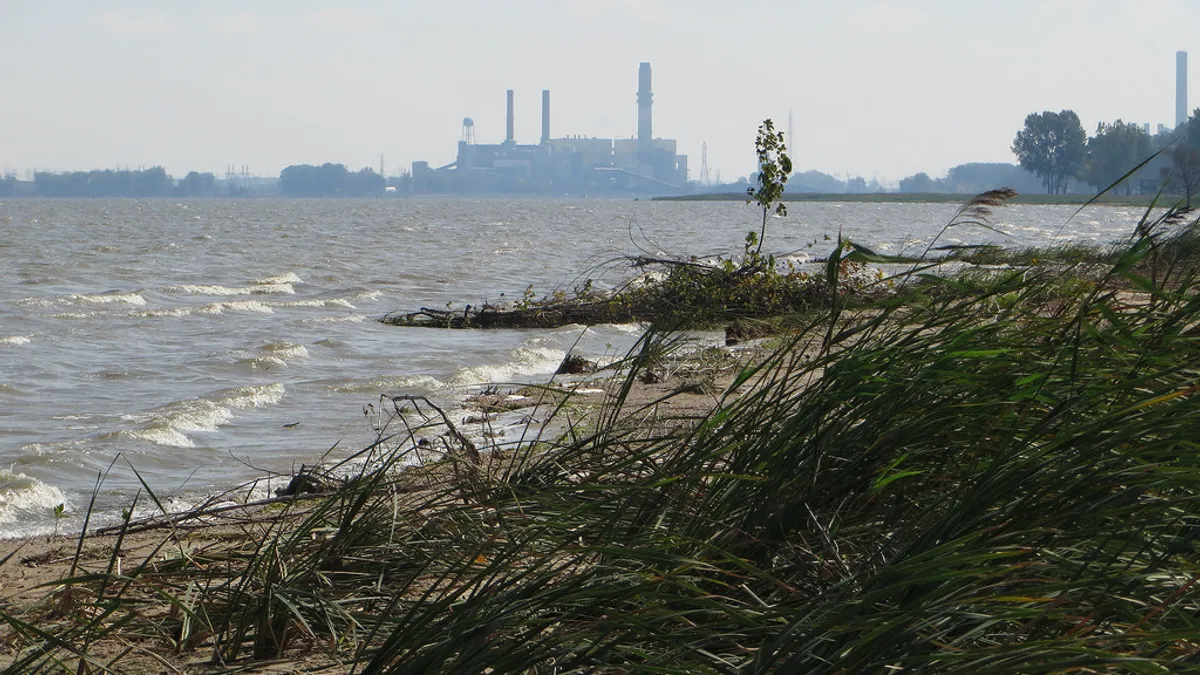Dive Brief:
- Consumers Energy announced Wednesday that it will soon file a long-term plan with Michigan regulators that calls for shuttering the Karn coal-fired power plant in 2023, eliminating coal use and more than tripling renewable energy utilization in just over a decade.
- Under the plan, Consumers will grow renewable energy from 11% of its supply today to 37% by 2030, on its way to reaching 43% green power and 80% reduced carbon emissions by 2040.
- The utility is looking to a barrage of grid modernization tools, and plans to use demand response and efficiency to reduce demand more than 20%, while also adding 5 GW of renewables.
Dive Insight:
Consumers announced in February that it would be making significant efforts to clean up its energy supply and reduce emissions. Now, as it closes in on filing an integrated resource plan (IRP) with the Michigan Public Service Commission, the utility has sketched out a proposal that reads like a laundry list of clean energy technology.
"In-depth modeling analysis showed higher levels of energy efficiency and demand management programs and renewable energy are the best and most affordable way to meet customers' needs in the future," the utility said in a statement Wednesday.
The plan calls for retiring two coal-fired units at the Karn Generating Complex near Bay City in 2023. Demand response, energy efficiency and other grid modernization tools would "take on more significant roles," Consumers said. Those virtual power plants would help customers save money and reduce energy demand 22% by 2040, according to the utility.
“Coal is becoming less economically viable every day. Consumers Energy’s prudent decision to retire the Karn coal plant recognizes that reality," Earthjustice Managing Attorney Shannon Fisk said in a statement.
Patti Poppe, president and CEO of Consumers Energy and parent company CMS Energy, said the IRP "will help guide key decisions" adding that "this is a pivotal moment" for the utility. Consumers plans to add 5 GW of solar energy "throughout the 2020s, along with wind and battery storage."
The pair of coal units at the Karn facility can generate a combined 515 MW, though they have been online since 1959 and 1961. The utility said it would file its IRP with regulators this week.














